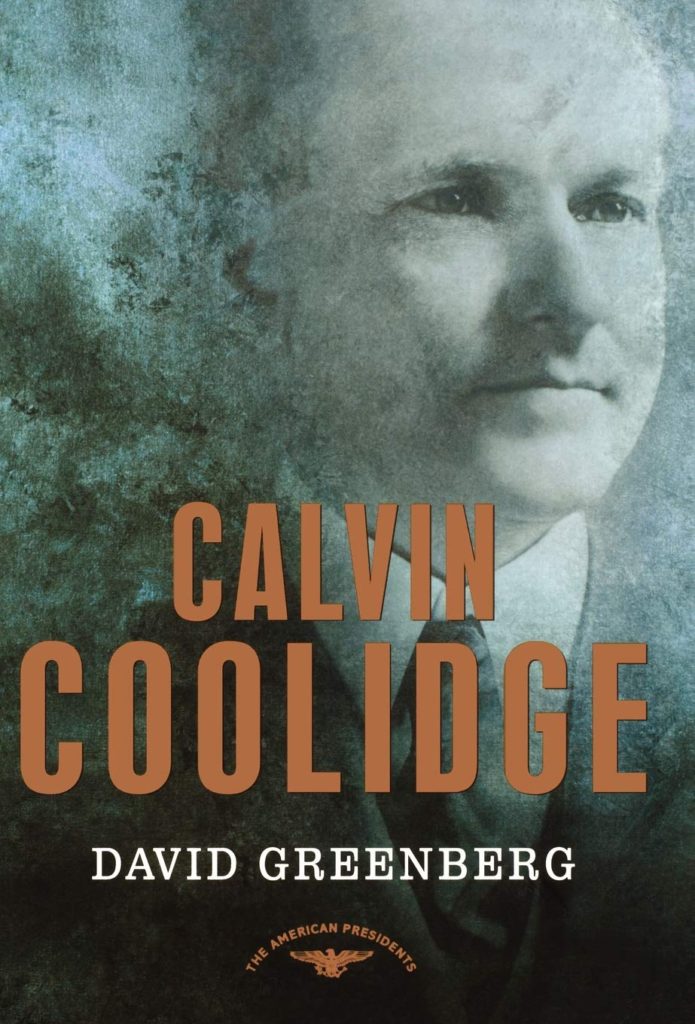“Only If you keep dead still, they will run down in three or four minutes. If you even cough or smile they will start up all over again.”
Calvin Coolidge’s advice to incoming President Hoover on how to deal with White House callers
Imagine with me for a moment. It’s August 2nd, 1923. You live in rural Vermont. Unlike your neighbors the Coolidge’s a few miles away, your telephone can take long-distance calls. Now imagine the adrenaline surge of running over to the Coolidge farm with the following message: Warren Harding is dead. Calvin, you’re now the President of the United States. That really happened. The men who brought the big news helped the vacationing vice president and his father find a copy of the Constitution in the family library so that the elder Coolidge, a notary public, could administer the oath of office to his son. It was 2:47 in the morning.
From 1898 to 1928, Calvin Coolidge lost only one election: Northampton (MA) School Board. He would later become that city’s mayor and lower taxes while shrinking the municipal debt and raising teacher’s salaries. As governor of Massachusetts, he downsized the state government, consolidating 100+ agencies into fewer than 20. “Silent Cal” didn’t have a lot of pizzazz, but he was a fiscal conservative’s dream date. Don’t believe me? Reagan hung CC’s portrait in the Cabinet Room of the White House. In one of his early campaign radio spots Dutch would foreshadow why he picked that painting: “So what if he was a “do nothing” President? Do you suppose doing nothing had something to do with reducing the budget, reducing the debt, and cutting taxes 4 times?” Coolidge would be the only president for the next seventy years to make a substantial dent in the national debt. (Ed. note: For those of you not doing the math it was Clinton, not Reagan, who would take up the debt-paying mantle.)
Sadly for Calvin, history hates a cold fish. Coolidge is generally ranked quite low among his fellow presidents. A popular joke about his political ascendency went, “he reached first on a walk, stole second, made third on an error and scored when the catcher died.” He’s not in the conversation for worst, but he’s not much above the fray. If you know anything about the 30th president, it’s probably this quote: “The chief business of the American people, is business.”. The beautiful irony of “the Coolidge Prosperity” that kept unemployment low, wages high and the 1920’s roaring is that Cal was a stuffy penny-pincher who wouldn’t be caught dead in a speakeasy. He was more concerned with how people made money, not how they spent it. An apostle of Say’s Law (supply creates it’s own demand), Cal wanted “to encourage business, not merely for its own sake but because that is the surest method of administering to the common good.” Foreign policy? Infrastructure? Civil Rights? They can wait. We’ve got a business to run here!
He also wanted the federal government to stay the hell out of the way. Deregulation was the word du jour. Coolidge let “Wonderboy” Herbert Hoover run wild at the Commerce Department, promoting business opportunities in every direction. Lax enforcers were placed on the Federal Trade and Interstate Commerce Commissions. And when the third richest man in America runs your Treasury Department, somehow several large companies (including ones in which Secretary Andrew Mellon had a stake) benefited grandly from handouts. $3.5 billion in tax rebates were given out over Mellon’s tenure, plus returns of more than $80 million in inheritance taxes to the heirs of the some of the nation’s largest estates. In spite of this hands off approach (or, some would argue, because of it) the economy boomed like a second wave of the Gilded Age.
Coolidge’s legislative slate also spoke volumes about his “America First” agenda and fiscal hyperfocus. Cal pushed through the Johnson-Reed Immigration Act of 1924, strictly limiting immigration. While only letting in 2% of the population of each nationality based on its 1890 Census population, the bill completely excluded immigrants from Asia. This was a reduction from the 3%/1910 Census numbers that had been in use for several years and eliminated Japanese immigration altogether, a touchy subject of late in California (the Japanese had a “gentlemen’s agreement” with the US that they would curtail emigration from their side if the Japanese already living in California would be allowed into unsegregated schools). CC would even use his first State of the Union address to declare, “America must be kept American.”
On the miser side, In addition to the aforementioned Coolidge-Mellon tax bills, Cal approved the Dawes Plan of resolving WWI reparations (where’s Venmo when you need it?). He vetoed veteran’s bonuses for WWI combatants. He also vetoed (twice) the McNary-Haugen bill for farm subsidies. The latter plan was for farmers to sell their surpluses to the federal government, which would then market them abroad. CC saw this as a negative feedback loop, with the surplus purchase creating more creation, thus more surplus, and on and on. He thought it was government price-fixing. Also, it relied on other countries; not something an America First! administration was keen to do. The Farm Bloc would not get subsidy supports until the New Deal. Lastly, Coolidge would ignominiously ignore pleas for federal flood controls after the Mississippi River flood of 1927. He would put Hoover on the case eventually, but he thought local governments and property owners should bear the cost of flood management, not the feds. Echoes of this tragedy would ring again in 2005 with Hurricane Katrina.
Cal liked a tight ship. In his unglamorous way, that’s how he ran things all his life. In the summer of 1923, when his son Cal Jr. was working in a tobacco field another boy remarked, “If my father was president, I would not work in a tobacco field.” The younger Coolidge replied, “If my father was your father, you would.” It’s strange that Coolidge lives in the shadows of presidential memory, considering he won election in his own right in 1924 by one of the largest margins ever. I think it hammers home that fact that being a “great” president has as much to do with personality as results. Calvin Coolidge suffered several tragedies in his life and many argue it was depression, not misanthropy, that led to his terse manner, his extended sleeping habits and generally dour mood. Either way he rolled with it, even commenting once, “I think the public wants a solemn ass as a president and I think I’ll go along with them.” As much as the American public decries governmental intervention, all of the truly great presidents pushed the limits of Constitutional power and were lauded for it. Calvin Coolidge sat silently by and watched things proceed apace. And that was just fine by him.
Trivia
- First President to appear in a talking film (irony!) – you can find these reels in the Smithsonian now.
- At a party once the hostess supposedly said, “I made a bet today that I could get more than two words out of you.” His reply: “You lose.”
- Boston police strike of 1919. After significant time sitting on the sidelines, once the riots started he castigated the police for abandoning their posts and won wide acclaim for it. “There is no right to strike against the public safety by anybody, anywhere, anytime.” This would catapult him into VP consideration.
- Radio Act of 1927 – declared the airwaves public property and subject to government regulation (set panel that would become the FCC).
- Hired J Edgar Hoover to head the FBI.
- Had a huge library but wasn’t a big reader, “more like the respect of one who reveres afar off than with any intimate daily acquaintance.” according to one journalist.
- Known for sleeping a lot (argued by some as depression over losing his son) Groucho Marx once yelled out during a vaudeville show, “Isn’t it past your bedtime, Calvin?”
- Never traveled outside the US except a honeymoon in Montreal and a diplomatic trip to Havana in 1928.
- first state of the union broadcast over radio 1923.
Follow-up Reading
- Rising Tide: The Great Mississippi Flood of 1927 and How It Changed America by John M. Barry
- Calvin Coolidge: The Quiet President by Donald McCoy
- Coolidge: An American Enigma by Robert Sobel

